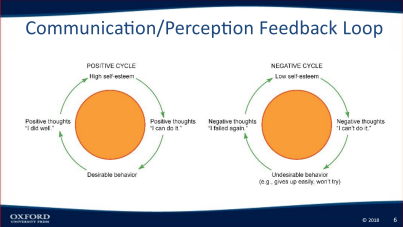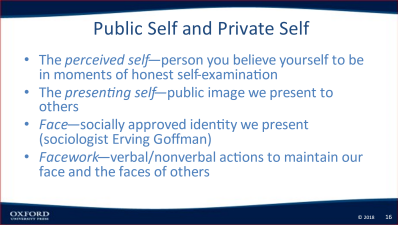How To Love Your Brother With Biblical Communication
By Garry Maddux
July 16, 2023
Opening Scripture: Mark 12:29-31
29) And Jesus answered him, The first of all the commandments is, Hear, O Israel; The Lord our God is one Lord:
30) And thou shalt love the Lord thy God with all thy heart, and with all thy soul, and with all thy mind, and with all thy strength: this is the first commandment.
31) And the second is like, namely this, Thou shalt love thy neighbour as thyself. There is none other commandment greater than these.
I have taught public speaking and interpersonal communication at the college level for the past 15 years. Most textbooks on interpersonal communication use theories or ideas from the Bible. I am still learning ways to speak that represent that I love my brother. Every time I teach a class, I learn something new or reaffirm my biblical beliefs.
In this lesson, I believe it’s important for Christians to know how to speak in a healthy way biblically. I will give some theories on communication and scriptures to reaffirm these ideas. Additionally, I will give examples of poor and healthy communication.
Now let’s begin with healthy communication. Healthy communication is important. To love our neighbor, one must know the proper ways to communicate love.
(Leviticus 19:18) Thou shalt not avenge, nor bear any grudge against the children of thy people, but thou shalt love thy neighbor as thyself: I am the LORD.
H157 âhabהבַאָ agape love which is the highest level of love.
This teaching provides an understanding of the ways we communicate and how good biblical communication is a way to love our neighbor. What is communication?
A college textbook, “Interplay” defines communication. Communication is the sending and receiving of information and can be one-on-one or between groups of people. Communication requires a sender, the person who initiates communication, to transfer their thoughts or encode a message. This message is sent to the receiver, a person who receives the message, and finally, the receiver must decode, or interpret the message (Adler et. Al., 2022).
Biblical communication starts with a person (sender) knowing the scriptures and how to encode a Godly message. Next, the person (receiver) must decode the message. The person decodes the message positively, negatively, or neutral.
Example of how Jesus communicated:
John 8:4-9
4) They say unto him, Master, this woman was taken in adultery, in the very act.
5) Now Moses in the law commanded us, that such should be stoned: but what sayest thou?
6) This they said, tempting him, that they might have to accuse him. But Jesus stooped down, and with his finger wrote on the ground, as though he heard them not.
7) So when they continued asking him, he lifted himself, and said unto them, He that is without sin among you, let him first cast a stone at her.
8) And again he stooped down and wrote on the ground.
9) And they which heard it, being convicted by their own conscience, went out one by one, beginning at the eldest, even unto the last: and Jesus was left alone, and the woman standing in the midst.
Christ encodes the message into the dirt. When the Jews decode the message, they became ashamed and walk away. Some say Jesus wrote their names in the sand.
(Jeremiah 17:13) (KJV) O LORD, the hope of Israel, all that forsake thee shall be ashamed, and they that depart from me shall be written in the earth, because they have forsaken the LORD, the fountain of living waters.
We are to live daily having a conscience void of offenses.
(Act 23:1) And Paul, earnestly beholding the council, said, Men and brethren, I have lived in all good conscience before God until this day.
(Act 24:16) And herein do I exercise myself, to have always a conscience void of offence toward God, and toward men.
Encoding the message with Godly principles will assist in having a conscience void of offenses. Encoding the message with worldly, ungodly thoughts will bring offense. Decoding a message correctly and responding in a Godly way will assist in having a conscience void of offenses.
Decode a message with negative ungodly thoughts and responses bring offenses. The environment influences us to stray from God and communicate (talk) like the world.
(Romans 12:17) (KJV) Recompense to no man evil for evil. Provide things honest in the sight of all men.
(Romans 12:18) If it be possible, as much as lieth in you, live peaceably with all men.
(Romans 12:19) Dearly beloved, avenge not yourselves, but rather give place unto wrath: for it is written, Vengeance is mine; I will repay, saith the Lord.
An article from Christianity Today, written by Reed, says,
“Conflict is inevitable. It’s why Paul uses a double qualifier in Romans 12:18: "If it is possible [first qualifier], as far as it depends on you [second qualifier], live at peace with everyone." Paul knew that living at peace isn't always possible because, though it depends partly on you, it also requires the cooperation of one or more people other than you (Reed, 2004).
According to Reed, “Conflict is common in the body of Christ, but must it be debilitating? Disagreements are to be expected, but must the way Christians settle their disputes-too often nasty-be our defining characteristic? Our recent survey says it shouldn't, but it often is. We also have good news. While 95% of pastors report having experienced conflict, and 20% are enduring conflict right now, almost all the pastors we polled reported at least some positive outcomes.”
Are Judeo-Christian pastors following the correct biblical concepts in communication? Good communication requires effort and cooperation with all parties.
There are five parts to speech.
1. Intellect - How will I respond.
2. Emotions - What are my emotions about my idea.
3. Thought - How will I say it.
4. Speech – The act of communicating my thoughts.
5. Deed - What is the feedback received and what action do I need to take.
(Adler et. Al., 2021)
For speech is to reveal that which was concealed in thought, as in the case of a person, speech reveals to the hearers the speaker’s concealed and hidden thoughts (Adler et. Al., 2021).
Roeder, author of a book for married couples, says, “The soul is a mixture of emotions.”
1. Negative emotions Anger, jealousy, vengeance
2. Positive emotions happy, glad, thankful
3. When we communicate or think in a negative way, we give in to negative spiritual forces and undesirable behavior
4. When we communicate or think positively, we create desirable behavior. A positive desirable behavior shows we love our brother (2013).
The communication perception loop from Interplay (2021) illustrates desirable and undesirable behavior. This model also applies to our conservation with others.

Our words create blessings or curses
(Proverbs 18:21) (KJV) Death and life are in the power of the tongue: and they that love it shall eat the fruit thereof.
(Proverbs 15:4) (KJV) A wholesome tongue is a tree of life: but perverseness therein is a breach in the spirit.
Choose speech that is positive when communicating with others and give good feedback. God wants us to be discreet in our conversation. The enemy wants us to gossip and talk about others.
(Leviticus 19:16) (KJV) Thou shalt not go up and down as a talebearer among thy people: neither shalt thou stand against the blood of thy neighbour: I am the LORD.
(1 Timothy 5:13) (KJV) And withal they learn to be idle, wandering about from house to house; and not only idle, but tattlers also and busybodies, speaking things which they ought not.
When you gossip it affects three people:
1. Yourself (sin).
2. The one who listens to your gossip.
3. The one who you are talking about.
The following graph shows how young students are affected by the words of others.

There is a quote from Charles Caleb Colton, an eccentric English writer (n.d.), “There is an old saying if you can’t say anything good about a person then don’t say anything.” We all need to speak each day but be careful about how we speak. Females speak more words per day than men. God granted females a greater portion of the speech.
According to Greve (2014) from Time Magazine, “Several self-help books have cited this statistic: women utter an average of 20,000 words a day while men speak an average of only 7,000.”
Gladieux (n.d.) says, “As for why women are usually more verbal than men, women possess higher levels of language protein in their brains.”
The importance of expressing feelings healthily.
The following information was obtained from Roeder’s, “The Intimate Marriage: A Workbook for Engaged and married couples who desire increased intimacy in their relationship with God and with one another.”
“When someone shares their heart with a brother it’s important how to respond. Example: Good feedback: I have heard, and I care. Do: let them know that you have heard them with your body language. Let them have their say without you interrupting them.
Unhealthy feedback: No one else feels that way! You have got it wrong. I do XYZ, you should too. Don’t try to fix it for them but ask caring questions and repeat back what they have said (Roeder,2013).”
A comment from Joanne Maddux who works with children and advises mothers on how to communicate with their children says, “It is important to express feelings (parents, coach) versus restrict emotions – don’t cry. With children (and others) it is important to separate their behavior from their identity. For example, when a child misbehaves say, “That was not a good choice (not you are a bad boy).” Don’t attack identity-- who they are versus behavior,(Maddux, 2023).”
According to Adler et. al. (2021), there is a difference between feeling and acting on them by saying, “Getting in touch with certain emotions does not commit you to a course of action but it helps you decide how best to act. what best to say.
(Ephesians 4:26) Be angry and sin not. Get clarity on your emotions and what they are about.
(1 Peter 5:7) (KJV) Casting all your care upon him; for hecareth for you.
It is okay to share feelings with God. Biblical examples David Ps 142. Ps 62:8.
Impression Management refers to the communication strategies people use to present the self and to influence how others view them. (Adler et. al., 2021)

Input: One person gives a positive or negative impression about you in a non-threatening way.
Joanne (2023) says, “We should present a Godly self-public image.” An example from (Joanne, 2023) is, “Good input is to ask permission to share an affirming thought, and poor input is to make a negative statement or become critical of the input.”
A student receives a lower grade on a paper. A good way I have used to give input and allow the student to maintain a good face is a sandwich. Sandwich states a positive remark, a critique, and then a positive remark. An example I used was, “Nice job in following the directions for the paper, Ideas would be clearer if the spelling is checked. Overall nice work!”
Christ illustrates this in one of the letters to the churches in Revelation.
(Revelation 2:2) (KJV) I know thy works, and thy labour, and thy patience, and how thou canst not bear them which are evil: and thou hast tried them which say they are apostles, and are not, and hast found them liars:
Revelation 2:3) And hast borne, and hast patience, and for my name's sake hast laboured, and hast not fainted.
Revelation 2:4) Nevertheless I have somewhat against thee, because thou hast left thy first love.
(Revelation 2:6) (KJV) But this thou hast, that thou hatest the deeds of the Nicolaitans, which I also hate.
Can you receive input without getting defensive and blaming others? How about venting to a person? Telling a friend or family member how you feel about a situation. They may pick up your offense. Instead, identify your feelings and talk about yourself.
Example: I feel defensive about comments on my test because I think I did my best. If you get into an intense discussion- take a truce and find time to come back and resolve the problem after each has had a chance to pray (Roeder, 2013).
What image of self-do people present?
Traveling in a bigger city you see a beggar on the side of the road. How is this person dressed? Do the beggar’s dress and personal items make you believe he is poor and in need? How would you respond? Can you tell if it is a scam or if the beggar is really in need? My response to a beggar is, get in the car and I will take you to get something to eat. If they say no, then I believe it is a scam. If they get in the car, then I know I have done my good deed.
Do our manners, dress, and image present Godly behavior or ungodly behavior? Luke 10:29-37, The good Samaritan (Paraphrase).
(Luke 10:29) (KJV) But he, willing to justify himself, said unto Jesus, And who is my neighbor?
Would you go across the road to help someone in need?
(Deuteronomy 15:7) (KJV) If there be among you a poor man of one of thy brethren within any of thy gates in thy land which the LORD thy God giveth thee, thou shalt not harden thine heart, nor shut thine hand from thy poor brother:
(Deuteronomy 15:8) (KJV) But thou shalt open thine hand wide unto him, and shalt surely lend him sufficient for his need, in that which he wanteth.
A few final points. We have a responsibility to communicate with our brother when there is a conflict or noticeable sin.
(Matthew 18:15) (KJV) Moreover if thy brother shall trespass against thee, go and tell him his fault between thee and him alone: if he shall hear thee, thou hast gained thy brother.
If you have a problem with a brother, then go to him right away and resolve it before your thought turns into a sin against him.
(Matthew 5:24) Leave there thy gift before the altar, and go thy way; first, be reconciled to thy brother, and then come and offer thy gift.
The fundamental attribution error is the tendency to give more weight to personal qualities than to the situation when making attributions (Wieman& Welsh, 2016).
For example, if someone makes a hurtful comment, you are likely to consider it as the person doesn’t know what he/she is talking about, the person must be mean and dirty-minded instead of external factors (fatigue, pressures of life, having a bad day).
(Matthew 7:1) (KJV) Judge not, that ye be not judged.
Take a few minutes to pray before you make a wrong impressionabouta brother. Don’t allow your thoughts to turn into a sin against your brother. God desires our speech to bring joy.
(Ephesians 4:29) (KJV) Let no corrupt communication proceed out of your mouth, but that which is good to the use of edifying, that it may minister grace unto the hearers.
God will help you to have healthy communication. Take a moment and search your conscience. If you find something needing repair, commit to doing something about it.
Ask for the grace to fulfill.
The next lesson, the Lord willing, is on effective listening.
Citations:
Adler, Rosenfeld, Proctor II, (2011). InterPlay, The process of interpersonal communication, Oxford University Press.
Gladieux (n.d.). Why Do Women Talk So Much.Gladieuxcounseling.org.
Greve, (2014). Who Talks More, Men or Women? The Answer Isn't as Obvious as You Think, Time.com.
Hinduga, Patchin, (2016). Bullying and Suicide Among Middle and High School Students, Cyberbullying Research Center. www.cyberbullying.org.
Maddux, (2023). Personal Interview with Joanne Maddux, OTR.
Reed, (2004). Leadership Surveys Church Conflict. Christianity Today.org.
Hinduga, Patchin, (2016). Bullying and Suicide Among Middle and High School Students, Cyberbullying Research Center. www.cyberbullying.org.
Roeder D, Roeder L, (2013). The Intimate Marriage: A workbook for engaged and married couples who desire increased intimacy in their relationship with God and with one another. Self-Publish.
Wieman, C, & Welsh, A (2016). The connection between teaching methods and attribution errors. Educational Psychology Review, 28,645-648.












